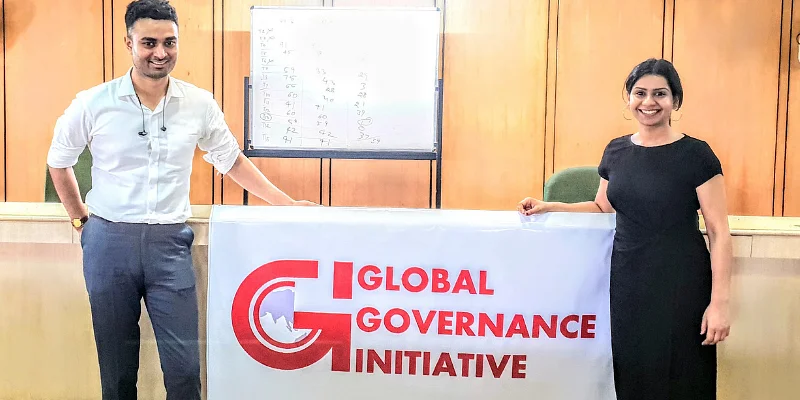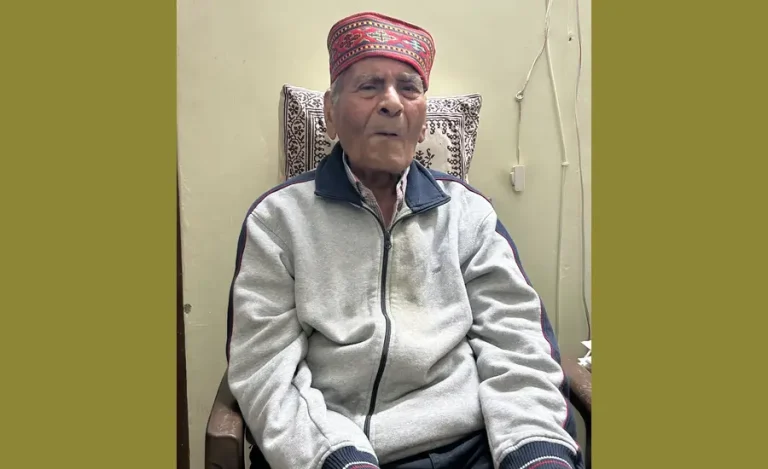No one wants to encounter failure, but still it visits us every now and then. Be it in any exam, a job, a relationship or some target or goal, we have all encountered failures at some point in our life. Sometimes, the effects can be long-lasting and leave deep scars, especially in the case of young people. Today, let’s know from CEO of Global Governance Initiative (a policy consulting, management and sustainability platform), Naman Shrivastava, how to handle failures in exams. Recently, he took to Twitter to say how one should bounce back, giving examples from his own experiences as an ex-UPSC aspirant.
He tweeted that 99% of kids in India fail in some ‘life-defining’ exams. It could be UPSC, IIT, CA, CAT, the list is endless. Such failures lead to depression, low confidence, anxiety and envy. He talks about how one should bounce back in life after failing in these exams, sharing his own journey in a long thread.

FAILING IN EXAM
In the UPSC CSE exam for instance, percentage of failure is very high. 99.9% of applicants fail. And maximum of them give in to pessimism, stress and depression.
Also, this happens to be the time for Board exam results in India. Many students got good marks but many performed below their own expectations. And teenagers are most vulnerable in such times, as they worry that with less marks, roads for IIT, CAT and CA etc., are blocked for them.
2009-batch IAS officer of Chhattisgarh cadre, Awanish Sharan, shared his low marks in a board exam to motivate such students. Likewise, Naman Srivastava’s Twitter thread on his own encounters with failures also sought to reach out to such students and aspirants.
While growing up, my city was famous for 10-15 hours of power cuts, crimes in the surrounding areas (Bhind, Morena, Chambal), and desperately poor townfolks who never had much hope for economic betterment. The situation was really bad – at least while I was growing up. (2)
— Naman Shrivastava (@namanshrivastav) July 17, 2022
ON THE CRAZE FOR UPSC AND IIT
Sharing his own journey, Mr. Srivastava says he was born and brought up in Gwalior, Madhya Pradesh. “When my friends from the rest of the world curiously ask me which place do I come from in India? I always have to state the reference to Agra (the home of the Taj Mahal). I tell them, I come from Gwalior – around 100 KMs from Agra.”
He goes on to write that “while growing up, my city was famous for 10-15 hours of power cuts, crimes in the surrounding areas (Bhind, Morena, Chambal), and desperately poor townfolks who never had much hope for economic betterment. The situation was really bad – at least while I was growing up.”

Mr. Srivastava then writes that the only means to achieve glory for a middle-class Indian was to get into the IITs, and if for some reason that doesn’t work out, get into Delhi University to later prepare for the IAS exam. And why not? At IITs or at DU, kids from Tier 2 and Tier 3 cities will be exposed to a whole new world. They will interact with students from across the country, they will compete, they will collaborate, and will always be on the edge to grow.
“Some of my closest friends from Gwalior – went on to achieve incredible feats on the global stage. But for those who were left behind – succumb to a condition called the ‘loser’s effect’ – it is when you start doubting yourself, your actions, and every decision of your life after a minor setback. Low confidence is reflected in anything that you do in life. And the sad fact is that 99% of young kids will fall into this trap.”

ANALYZING FAILURES
Mr. Srivastava also highlighted the reasons behind such purported ‘failing’. “They will fail in some ‘life-defining’ exams, and the rest of their career trajectory will be downhill. They will fail not because they are not talented, smart, or diligent. They will fail because there are too many people competing for minuscule opportunities in India. What should you do in such a scenario? “
DEALING WITH FAILURE
He then suggests what aspirants or students should do if they find themselves in such a situation. We reproduce his tweets on how to deal with failures.
1. Create something of your own. I’m truly in awe of today’s generation from tier 2 and tier 3 Indian cities, who are hustling, and taking asymmetric bets in life. Every week, 2-3 hours of my time on the calendar is booked for these young bright minds from nooks and corners of India, who are 19-22-year-old kids. They are launching some really innovative businesses.
1. Creat something of your own – I’m truly in awe of today’s generation from tier 2 and tier 3 Indian Cities – who are hustling, and taking asymmetric bets in life. Every week, 2-3 hours of my time on the calendar is booked for these young bright minds from nooks and corners..(8)
— Naman Shrivastava (@namanshrivastav) July 17, 2022
2. Create your own quality network. One major reason why people at IIMs and Ivy League thrive is because of the network they build in those institutes. Build your own diverse peer group. This is of paramount importance. Reach out to people on Linkedin or Twitter for guidance. Most of the people are kind.
3. Don’t be scared of failure: This is one thing my parents always told me. And this is the first thing I tell our fellows when they join the GGI community. Your greatest learnings will happen when you are not in your comfort zone when you are asking ‘dumb’ questions. When you are making mistakes, and when you are over-committing.
4. Travel. It will BLOW your mind! If you are in your early 20s, and are struggling with money, I will be happy to host you (free of cost) at least in the places where I’m based.

ABOUT NAMAN SRIVASTAVA
Naman Srivastava is an ex-UPSC aspirant. He is currently the Chief Executive Officer at Global Governance Initiative. The company had collaborated with the office of Jayant Sinha, Chairperson for Standing Committee for Finance, when he was hiring for his Officer on Special Duty (OSD). Mr. Srivastava often takes to Twitter to motivate young people. Earlier, his thread on ‘how even after failing in UPSC, an aspirant can have a good future’, had gone viral.
99% of kids in India fail in some ‘life-defining’ exams. It could be IIT, UPSC, CA, CAT – the list is endless
— Naman Shrivastava (@namanshrivastav) July 17, 2022
Such failures lead to depression, low confidence, anxiety, envy.
How should you bounce back in life after failing these exams?
[A THREAD, My Story]
ReadOn, ReTweet ❤️ pic.twitter.com/rM0HZk5S3q
































